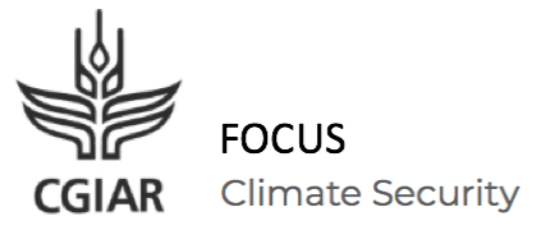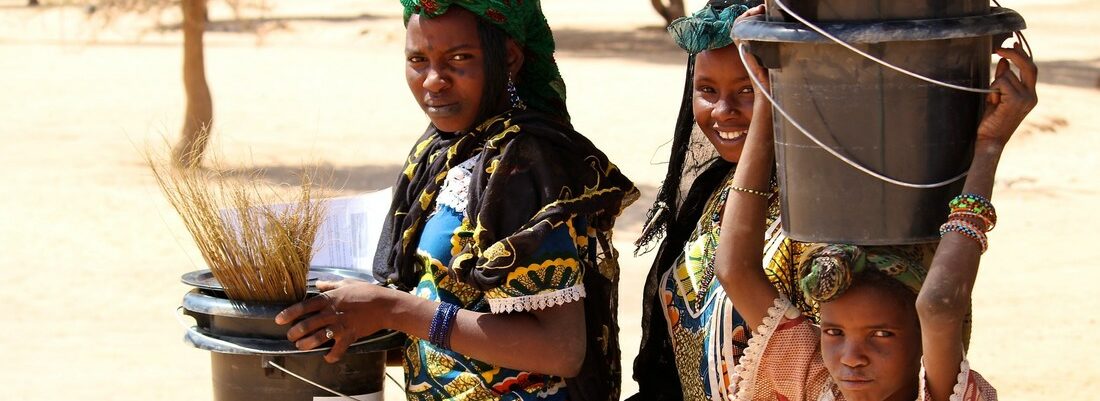Existing research shows that one of the most important social and political risks associated with climate change pertains to water availability. Global water security is a major global issue, a problem which many researchers believe is escalating due to climate change, a rising population and degradation of freshwater resources. The main consequences of climate change associated with water resources are shifts in precipitation patterns, increasing temperatures and an increasing frequency of flooding and drought. It has been estimated that these disruptions to the water cycle will likely leave billions of people water insecure resulting in the materialization of conflict around international water systems. In recent years, conflict studies have begun to pay more attention to the possible vulnerabilities of natural and social systems posed by climate change, particularly in poor and politically unstable parts of the world, such as Africa, Asia, and the Middle East. The combination of political, social, and environmental instability lends regions the increased potential for conflict. The importance of water as a resource means that tensions and frictions within and between countries can be easily exacerbated by its insecurity and while it may not always be the defining factor in generating conflict it can certainly serve as a catalyst to ignite sensitive situations.

One recent example of how water insecurity may lead to civil unrest in vulnerable areas is the Syrian Civil War which continues today. Experts indicate that there are correlations between the beginning of civil unrest and the countries longest recorded drought period between the years of 2006 and 2011. During this time rainfall in most parts of the country fell below the minimum amount needed to support un-irrigated farming. Millions of rural workers moved to urban areas in search of opportunities, putting an enormous strain on cities already supporting a recently displaced 1.5 million Iraqi refugees. By 2010 Syria’s GDP had dropped by almost half, falling from $5000 per hectare to $2,900. A combination of the socioeconomic changes, internal displacement and economic crisis led to the Arab Spring Protests in March 2011 that preceded the current conflicts. It is evident that although water scarcity alone may not have caused the civil war in Syria it was certainly a driver of events which resulted in unrest and early conflict between the Syrian regime and its people. This shows us an important impact pathway that a factor of climate change can have on internal and global conflict.
CGIAR and our partners at the International Water Management Institute (IWMI) have been working in the area of water security and its connection to climate change and conflict for some time. Their work has so far focused on three different levels, each one with different challenges and subsequent solutions.
Transboundary waters which refers to a body of water shared by two or more countries, can often be the source of conflict. The complexities arise when changes in water flows - particularly reductions - lead to disputes and heightened political tension between nations. Similar issues can arise around shared groundwater systems. IWMI has a research group focused on transboundary issues such as water resource management, politics, and the water-food-energy nexus. The second area where IWMI’s work is focused is the river basin or ground water discharge zone in various locations across Asia and Africa. The task here is balancing water across different sectorial demands and the tensions which arise under increasingly water-scarce conditions. The main challenge in this space is managing the devastating impacts of floods and droughts on farmers and agricultural systems. Many of the IWMI initiatives are focused on the management of risk factors and adaptation strategies before humanitarian disasters occur. Such work includes early warning systems and financial risk instruments such as insurance to support farmers during climate crisis. The third part of IWMI’s work is water in urban systems, particularly rapidly growing cities in Africa and Asia. The provision of water and food to cities relies on developed value chains, investments in infrastructure, good governance, and connections with upstream basins, hinterlands and beyond. CGIAR and IWMI’s work covers various areas in this space including the circular economy, governance, as well as work on institutions and local resilience planning.
IWMI works alongside CGIAR toward mitigating various forms of conflict caused by a combination of water stresses. As we aim to expand our research on climate security and conflict, it is important to note the connection between climate security, water security and conflict. Changes in rainfall and temperature, felt through soil moisture, stream flow and groundwater are fundamental to crop production. Similarly, climate extremes such as droughts and floods are shown to have devastating impacts on farmers. All of these variabilities, in tandem with much deeper-rooted issues of educational and employment opportunities, governance and government interventions and basic economic and social resilience to withstand climate shocks, bring challenges for humanitarian development and peace actions.

